Joseph (/ˈdʒoʊzəf, -səf/;[1] Hebrew: יוֹסֵף , Standard Yosef Tiberian Yôsēp̄; "may He add"; Arabic: يوسف Yūsuf or Yūsif; Ancient Greek: Ἰωσήφ Iōsēph) is an important person in the Hebrew Bible: his life connects the narrative of Abraham, Isaac and Jacob in Canaan to the subsequent narrative of the liberation of the Israelites from slavery in Egypt.
Joseph Orders Simeon's Imprisonment, Antonio del Castillo y Saavedra
The Chastity Of Joseph, Antonio del Castillo y Saavedra
Joseph Explains The Dream Of The Pharaoh, Antonio del Castillo y Saavedra
The Triumph Of Joseph In Egypt, Antonio del Castillo y Saavedra
Joseph Sold By His Brothers, Antonio del Castillo y Saavedra
Joseph And His Brethren, Antonio del Castillo y Saavedra
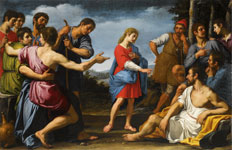
Joseph and his Brothers, Ottavio Vannini
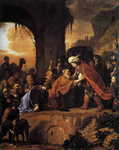
Joseph Receives His Father and Brothers in Egypt, Salomon de Bray
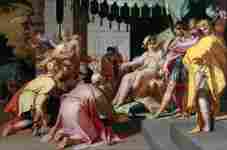
Joseph And His Brothers, Abraham Bloemaert
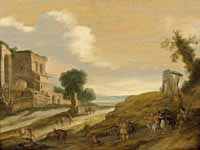
Joseph's Brothers on the Road from Egypt, Lambert Jacobsz
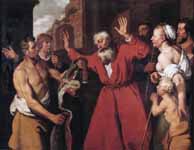
Joseph's blood-stained coat is brought and shown to Jacob, Lambert Jacobsz
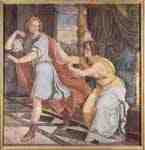
Joseph and the wife of Potiphar, Philipp Veit
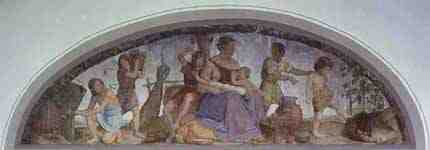
The Seven Fat Years, Philipp Veit
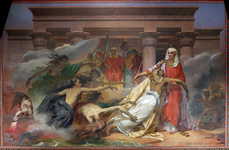
Egypt saved by Joseph, Abel de Pujol
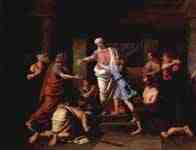
Joseph and his Brothers, Charles Thévenin
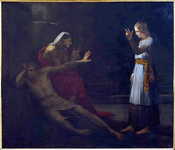
Joseph interpreting the dreams of Pharaoh, Abel de Pujol
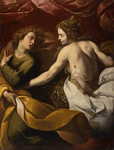
Joseph and the Wife of Potiphar, Carlo Francesco Nuvolone
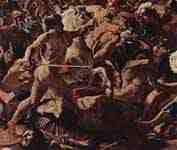 The Battle of Joseph against the Amorites , detail, Nicolas Poussin
The Battle of Joseph against the Amorites , detail, Nicolas Poussin
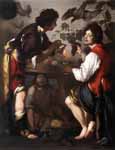
Joseph Telling His Dreams, Bernardo Strozzi
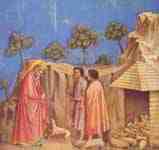 Arena Chapel : Joseph's dream, Giotto di Bondone
Arena Chapel : Joseph's dream, Giotto di Bondone
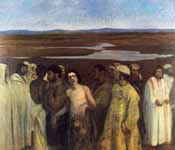
Joseph Sold into Slavery by his Brothers, Károly Ferenczy
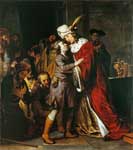
Joseph and his brothers, Gerbrand van den Eeckhout
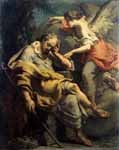
Joseph's Dream, Gaetano Gandolfi
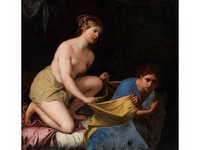
The Temptation of Joseph , Gregorio Lazzarini
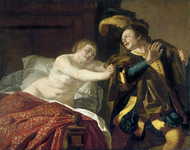
Joseph and Potiphar's wife, Christiaen van Couwenbergh
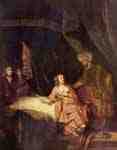
Joseph accused by Potiphar's wife, Rembrandt Harmensz. van Rijn
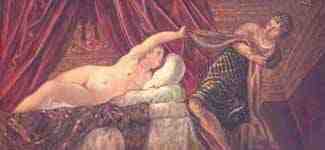 Joseph and Potiphar's wife, Jacopo Tintoretto
Joseph and Potiphar's wife, Jacopo Tintoretto
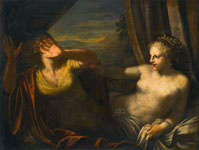
Joseph and Potiphar's Wife, Pietro Liberi
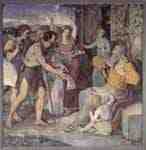
The complaint of Jacob to Joseph , Friedrich Wilhelm Schadow
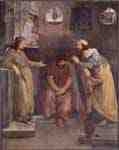
Joseph's dream interpretation in jail, Friedrich Wilhelm Schadow
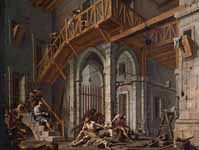
Joseph Interprets the Dreams of the Pharaoh's Servants Whilst in Jail, Alessandro Magnasco
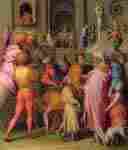
Joseph sold to Potiphar, Pontormo
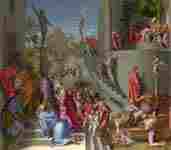
Joseph with Jacob in Egypt, Pontormo

Joseph's Brothers beg for Help, Pontormo
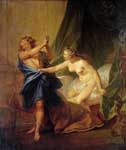
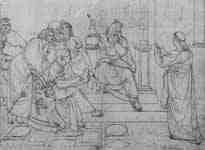
The Seven Fat Years, Philipp Veit
Joseph in jail, Nikolaos Gyzis
Joseph and Potiphar's Wife , Antonio Maria Esquivel
Joseph and Potiphar's Wife, Heinrich Aldegrever
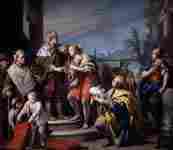
Joseph in the Pharaoh's Palace, Jacopo Amigoni
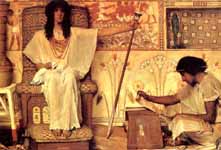
Joseph Overseer of the Pharaohs Granaries, Lawrence Alma-Tadema
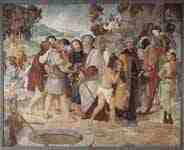
The sale of Joseph, Friedrich Overbeck
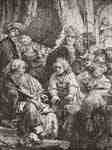 Joseph , his dreams telling, Rembrandt Harmensz. van Rijn
Joseph , his dreams telling, Rembrandt Harmensz. van Rijn
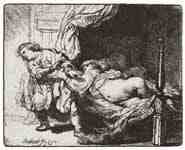 Joseph and Potiphar's wife, Rembrandt Harmensz. van Rijn
Joseph and Potiphar's wife, Rembrandt Harmensz. van Rijn
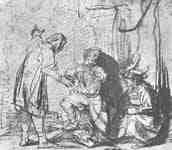 Joseph and his fellow prisoners, Rembrandt Harmensz. van Rijn
Joseph and his fellow prisoners, Rembrandt Harmensz. van Rijn
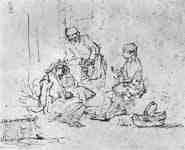 Joseph and his fellow prisoners, Rembrandt Harmensz. van Rijn
Joseph and his fellow prisoners, Rembrandt Harmensz. van Rijn
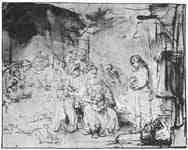 Joseph tells his dreams, Rembrandt Harmensz. van Rijn
Joseph tells his dreams, Rembrandt Harmensz. van Rijn
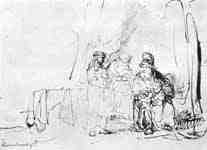 Joseph tells his dreams, Rembrandt Harmensz. van Rijn
Joseph tells his dreams, Rembrandt Harmensz. van Rijn
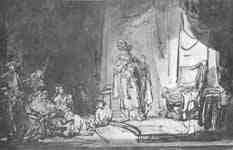 Joseph recognized by hiss brothers , Rembrandt Harmensz. van Rijn
Joseph recognized by hiss brothers , Rembrandt Harmensz. van Rijn
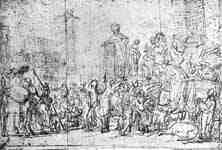 Joseph distributes grain in Egypt, Rembrandt Harmensz. van Rijn
Joseph distributes grain in Egypt, Rembrandt Harmensz. van Rijn
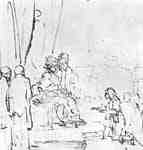 Joseph before Pharaoh, Rembrandt Harmensz. van Rijn
Joseph before Pharaoh, Rembrandt Harmensz. van Rijn
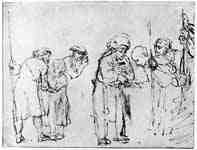 Joseph is sold by his brothers to the Ishmaelites, Rembrandt Harmensz. van Rijn
Joseph is sold by his brothers to the Ishmaelites, Rembrandt Harmensz. van Rijn
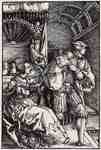
Joseph and Potiphar's wife, Heinrich Aldegrever
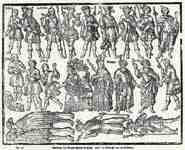 Joseph and His Brothers, Albrecht Schmid
Joseph and His Brothers, Albrecht Schmid
The Book of Genesis tells that Joseph was the 11th of Jacob's 12 sons and Rachel's firstborn, and tells how Joseph came to be sold into slavery by his jealous brothers, and rose to become vizier: the second most powerful man in Egypt next to Pharaoh. When famine struck Canaan, Jacob (Joseph's father) and Joseph's brothers came to the Land of Goshen in Egypt. According to the Book of Jubilees, Joseph was born on 1 Tammuz.
Joseph, son of Jacob and Rachel, lived in the land of Canaan with ten half-brothers, one full brother, and at least one half-sister. He was Rachel's firstborn and Jacob's eleventh son. Of all the sons, Joseph was preferred by his father, and this is represented by a "long coat of many colors".[34] When Joseph was seventeen years old he had two dreams that made his brothers plot his demise. In the first dream, Joseph and his brothers gathered bundles of grain, of which those his brothers gathered, bowed to his own. In the second dream, the sun (father), the moon (mother), and eleven stars (brothers) bowed to Joseph himself. These dreams, implying his supremacy, angered his brothers. (Genesis 37:1-11)
Plot against Joseph
Joseph's half-brothers were jealous of him; (Genesis 37:18-20) wherefore, in Dothan, most of them plotted to kill him, with the exception of Reuben, who suggested to have Joseph thrown into an empty cistern, intending to rescue Joseph himself. Unaware of this secondary intention, the others obeyed his first. Upon imprisoning Joseph, the brothers saw a camel caravan carrying spices and perfumes to Egypt, and sold Joseph to these merchants. Thereafter the guilty brothers painted goat's blood on Joseph's coat and showed it to Jacob, who therefore believed Joseph dead. (Genesis 37:12-35)
Potiphar's house
Joseph and Potiphar's Wife, Joseph leaving by Orazio Gentileschi
Ultimately, Joseph was sold to Potiphar, the captain of Pharaoh's guard. Later, Joseph became Potiphar's personal servant, and subsequently his household's superintendent. Here, Potiphar's wife tried to seduce Joseph, which he refused. Angered by his running away from her, she made a false claim that he tried to rape her, and thus assured his imprisonment. (Genesis 39:1-20)
Joseph in prison
The warden put Joseph in charge of the other prisoners, and soon afterward Pharaoh's chief cup-bearer and chief baker, who had offended the Pharaoh, were thrown into the prison,[43] and suffered dreams interpreted by Joseph, who stated that the chief cup-bearer would be reinstated but the chief baker would be hanged.[ Joseph requested the cup-bearer to mention him to Pharaoh and secure his release from prison,[ but the cup-bearer, reinstalled in office, forgot Joseph. After two more years, the Pharaoh dreamt of seven lean cows which devoured seven fat cows; and of seven withered ears of grain which devoured seven fat ears. When the Pharaoh's advisers failed to interpret these dreams, the cup-bearer arranged the summons of Joseph, who predicted seven years of abundance followed by seven years of famine, and advised the Pharaoh to store surplus grain.
Vizier of Egypt
Following the prediction, Joseph became Vizier, under the name of Zaphnath-Paaneah, and was given Asenath, the daughter of Potipherah, priest of On, to be his wife. During the seven years of abundance, Joseph ensured that the storehouses were full and that all produce was weighed. In the sixth year, Asenath bore two children to Joseph: Manasseh and Ephraim. When the famine came, it was so severe that people from surrounding nations came to Egypt to buy bread. The narrative also indicates that they went straight to Joseph or were directed to him, even by the Pharaoh himself. (Genesis 41:37-57) As a last resort, all of the inhabitants of Egypt, less the Egyptian priestly class, sold their properties to Joseph for seed; wherefore Joseph set a mandate that, because the people would be sowing and harvesting seed on government property, a fifth of the produce should go to the Pharaoh. This mandate lasted until the days of Moses. (Genesis 47:20-31)
Brothers sent to Egypt
In the second year of famine, Joseph's half brothers were sent to Egypt to buy goods. When they came to Egypt, they stood before the Vizier but did not recognize him as their brother Joseph, who was now in his late 30s; but Joseph did recognize them and did not speak at all to them in his native tongue of Hebrew.[50] After questioning them, he accused them of being spies. After they mentioned a younger brother at home, the Vizier (Joseph) demanded that he be brought to Egypt as a demonstration of their veracity. This was Joseph's full brother, Benjamin. Joseph placed his brothers in prison for three days. On the third day, he brought them out of prison to reiterate that he wanted their youngest brother brought to Egypt to demonstrate their veracity. The brothers conferred amongst themselves speaking in Hebrew, reflecting on the wrong they had done to Joseph. Joseph understood what they were saying and removed himself from their presence because he was caught in emotion. When he returned, the Vizier took Simeon and bound him as a hostage. Then he had their donkeys prepared with grain and sent the other brothers back to Canaan. Unbeknownst to them, Joseph had also returned their money to their money sacks. (Genesis 42:1-28)
The silver cup
The remaining brothers returned to their father in Canaan, and told him all that had transpired in Egypt. They also discovered that all of their money sacks still had money in them, and they were dismayed. Then they informed their father that the Vizier demanded that Benjamin be brought before him to demonstrate that they were honest men. Jacob became greatly distressed feeling that they treated him badly. After they had consumed all of the grain that they brought back from Egypt, Israel told his sons to go back to Egypt for more grain. With Reuben and Judah's persistence, they persuaded their father to let Benjamin join them for fear of Egyptian retribution. (Genesis 42:29-43:15)
Upon their return to Egypt, the brothers were received by the steward of the house of Joseph. When they were brought to Joseph's house, they were apprehensive about the returned money in their money sacks. They thought that the missed transaction would somehow be used against them as way to induct them as slaves and confiscate their possessions. So they immediately informed the steward of what had transpired to get a feel of the situation. The steward put them at ease, telling them not to worry about the money, and brought out their brother Simeon. Then he brought the brothers into the house of Joseph and received them hospitably. When the Vizier (Joseph) appeared, they gave him gifts from their father. Joseph saw and inquired of Benjamin and was overcome by emotion but did not show it. He withdrew to his chambers and wept. When he regained control of himself, he returned and ordered a meal to be served. The Egyptians would not dine with Hebrews at the same table, as doing so was considered loathsome, so the sons of Israel were served at a separate table. (Genesis 43:16-44:34)
That night, Joseph ordered his steward to load the brother's donkeys with food and all their money. The money they brought was double what they had from the first trip. Deceptively, Joseph also ordered that his silver cup be put in Benjamin's sack. The following morning the brothers began their journey back to Canaan. Joseph ordered the steward to go after the brothers and question them about the "missing" silver cup. When the steward caught up with the brothers, he seized them and searched their sacks. The steward found the cup in Benjamin's sack just as he had planted it the night before. This caused a stir amongst the brothers. However, they agreed to be escorted back to Egypt. When the Vizier (Joseph) confronted them about the silver cup, he demanded that the one who possessed the cup in his bag become his slave. In response, Judah pleaded with the Vizier that Benjamin be allowed to return to his father, and he himself be kept in Benjamin's place as a slave. (Genesis 44)
Family reunited
See also: Jacob in Egypt
Joseph weeps
Judah appealed to the Vizier begging that Benjamin be released and that he be enslaved in his stead, because of the silver cup found in Benjamin’s sack. The Vizier broke down into tears. He could not control himself any longer and so he sent the Egyptian men out of the house. Then he revealed to the Hebrews that he was in fact their brother, Joseph. He wept so loudly that even the Egyptian household heard it outside. The brothers were frozen and could not utter a word. He brought them closer and relayed to them the events that had happened and told them not to fear, that what they had meant for evil God had meant for good. Then he commanded them to go and bring their father and his entire household into Egypt to live in the province of Goshen, because there were five more years of famine left. So Joseph supplied them Egyptian transport wagons, new garments, silver money, and twenty additional donkeys carrying provisions for the journey. (Genesis 45:1-28)
Thus, Israel and his entire house of seventy, gathered up with all their livestock and began their journey to Egypt. As they approached Egyptian territory, Judah went ahead to ask Joseph where the caravan should unload. They were directed into the province of Goshen and Joseph readied his chariot to meet his father there. It had been over twenty years since Joseph had last seen his father. When they met, they embraced each other and wept together for quite a while. His father then remarked, “Now let me die, since I have seen your face, because you are still alive.” (Genesis 46:1-34)
Afterward, Joseph’s family personally met the Pharaoh of Egypt. The Pharaoh honored their stay and even proposed that if there were any qualified men in their house, then they may elect a chief herdsman to oversee Egyptian livestock. Because the Pharaoh had such a high regard for Joseph, practically making him his equal, it had been an honor to meet his father. Thus, Israel was able to bless the Pharaoh. (Genesis 47:1-47:12) The family was then settled in Goshen.
Father’s blessing and passing
The house of Israel acquired many possessions and multiplied exceedingly during the course of seventeen years, even through the worst of the seven-year famine. At this time, Joseph’s father was 147 years old and bedridden. He had fallen ill and lost most of his vision. Joseph was called into his father’s house and Israel pleaded with his son that he not be buried in Egypt. Rather, he requested to be carried to the land of Canaan to be buried with his forefathers. Joseph was sworn to do as his father asked of him. (Genesis 47:27-31)
Later, Joseph came to visit his father having with him his two sons, Ephraim and Manasseh. Israel declared that they would be heirs to the inheritance of the house of Israel, as if they were his own children, just as Reuben and Simeon were. Then Israel laid his left hand on the eldest Mannasseh’s head and his right hand on the youngest Ephraim’s head and blessed Joseph. However, Joseph was displeased that his father’s right hand was not on the head of his firstborn, so he switched his father’s hands. But Israel refused saying, “but truly his younger brother shall be greater than he.” A declaration he made just as Israel himself was to his firstborn brother Esau. To Joseph, he gave a portion more of Canaanite property than he had to his other sons; land that he fought for against the Amorites. (Genesis 48:1-22)
Then Israel called all of his sons in and prophesied their blessings or curses to all twelve of them in order of their ages. To Joseph he declared:
"Joseph is a fruitful bough, a fruitful bough by a well; His branches run over the wall. The archers have bitterly grieved him, Shot at him and hated him. But his bow remained in strength, And the arms of his hands were made strong by the hands of the Mighty God of Jacob (From there is the Shepherd, the Stone of Israel), By the God of your father who will help you, And by the Almighty who will bless you With blessings of heaven above, Blessings of the deep that lies beneath, Blessings of the breasts and of the womb. The blessings of your father have excelled the blessings of my ancestors, Up to the utmost bound of the everlasting hills. They shall be on the head of Joseph, And on the crown of the head of him who was separate from his brothers.” - Genesis 49:22-26 NKJV
After relaying his prophecies, Israel died. The family, including the Egyptians, mourned him seventy days. Joseph had his father embalmed, a process that took forty days. Then he prepared a great ceremonial journey to Canaan leading the servants of the Pharaoh, and the elders of the houses Israel and Egypt beyond the Jordan River. They stopped at Atad where they observed seven days of mourning. Here, their lamentation was so great that it caught the attention of surrounding Canaanites who remarked “This is a deep mourning of the Egyptians.” So they named this spot Abel Mizraim. Then Joseph buried Israel in the cave of Machpelah, the property of Abraham when he bought it from the Hittites. (Genesis 49:33-50:14)
After their father died, the brothers of Joseph feared retribution for being responsible for Joseph’s deliverance into Egypt as a slave. Joseph wept as they spoke and told them that what had happened was God’s purpose to save lives and the lives of his family. He comforted them and their ties were reconciled. (Genesis 50:15-21)
Joseph's burial
Joseph lived to the age of 110, living to see his great-grandchildren. Before he died, he made the children of Israel swear that when they left the land of Egypt they would take his bones with them, and on his death his body was embalmed and placed in a coffin in Egypt. (Genesis 50:22-26)
The children of Israel remembered their oath, and when they left Egypt during the Exodus, Moses took Joseph's bones with him. (Exodus 13:19) The bones were buried at Shechem, in the parcel of ground which Jacob bought from the sons of Hamor (Joshua 24:32), which has traditionally been identified with site of Joseph's Tomb, before Jacob and all his family moved to Egypt. Shechem was in the land which was allocated by Joshua to the Tribe of Ephraim, one of the tribes of the House of Joseph, after the conquest of Canaan.
Dreams as motif and contribution to narrative
The motif of dreams/dream interpretation contributes to a strong story-like narrative.[55][56] One can see the structure of a story develop with the distinct episodes containing the dream motif. The exposition contains Joseph’s beginnings as a dreamer; this leads him into trouble as, out of jealousy, his brothers sell him to into slavery. The next two instances of dream interpretation establish his reputation as a great interpreter of dreams; first, he begins in a low place, interpreting the dreams of prisoners. Then Joseph is summoned to interpret the dreams of Pharaoh himself. Impressed with Joseph’s interpretations, Pharaoh appoints him as second-in-command (Gen 41:41). This sets up the climax of the story, which many regard to be the moment Joseph reveals his identity to his brothers (Gen 45:3).
See also : Bible, Paintings, Drawings
----
Fine Art Prints | Greeting Cards | Phone Cases | Lifestyle | Face Masks | Men's , Women' Apparel | Home Decor | jigsaw puzzles | Notebooks | Tapestries | ...
----
Artist
A - B - C - D - E - F - G - H - I - J - K - L - M -
N - O - P - Q - R - S - T - U - V - W - X - Y - Z








